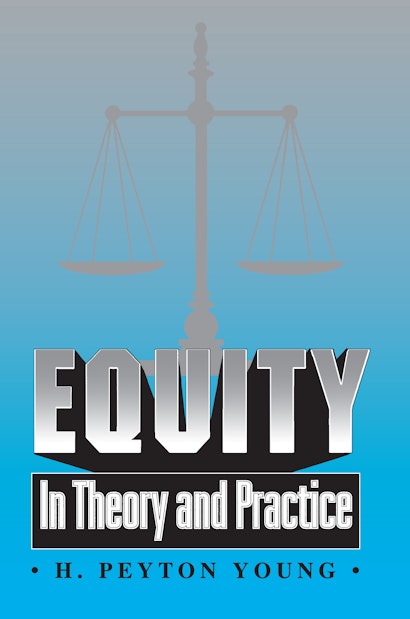Governments and institutions, perhaps even more than markets, determine who gets what in our society. They make the crucial choices about who pays the taxes, who gets into college, who gets medical care, who gets drafted, where the hazardous waste dump is sited, and how much we pay for public services. Debate about these issues inevitably centers on the question of whether the solution is “fair.” In this book, H. Peyton Young offers a systematic explanation of what we mean by fairness in distributing public resources and burdens, and applies the theory to actual cases.
H. Peyton Young is Professor of Economics at The Johns Hopkins University. He is the coauthor, with M. L. Balinski, of Fair Representation.
"A concise, clearly written introduction to the alternative principles of equity in practical and topical contexts.... Young's concern is with what he calls 'equity in the small' or 'macro justice': solutions to everyday problems as distinguished from the goals of social philosophers seeking to establish basic principles for sharing the fruits of social cooperation."—Robert E. Kuenne, The Southern Economic Journal
"This book provides a rich survey of concepts of equity and points out the need for special methods for particular cases, many of them original with the author. The need for careful analysis of the value presuppositions is brought out in a clear and creative presentation."—Kenneth J. Arrow, Stanford University
"Young has written an exciting book on the question of who gets what in contemporary society, and whether such outcomes are fair. Students of social justice throughout the social sciences and philosophy will learn much from this book."—Nathan Keyfitz, Harvard University

